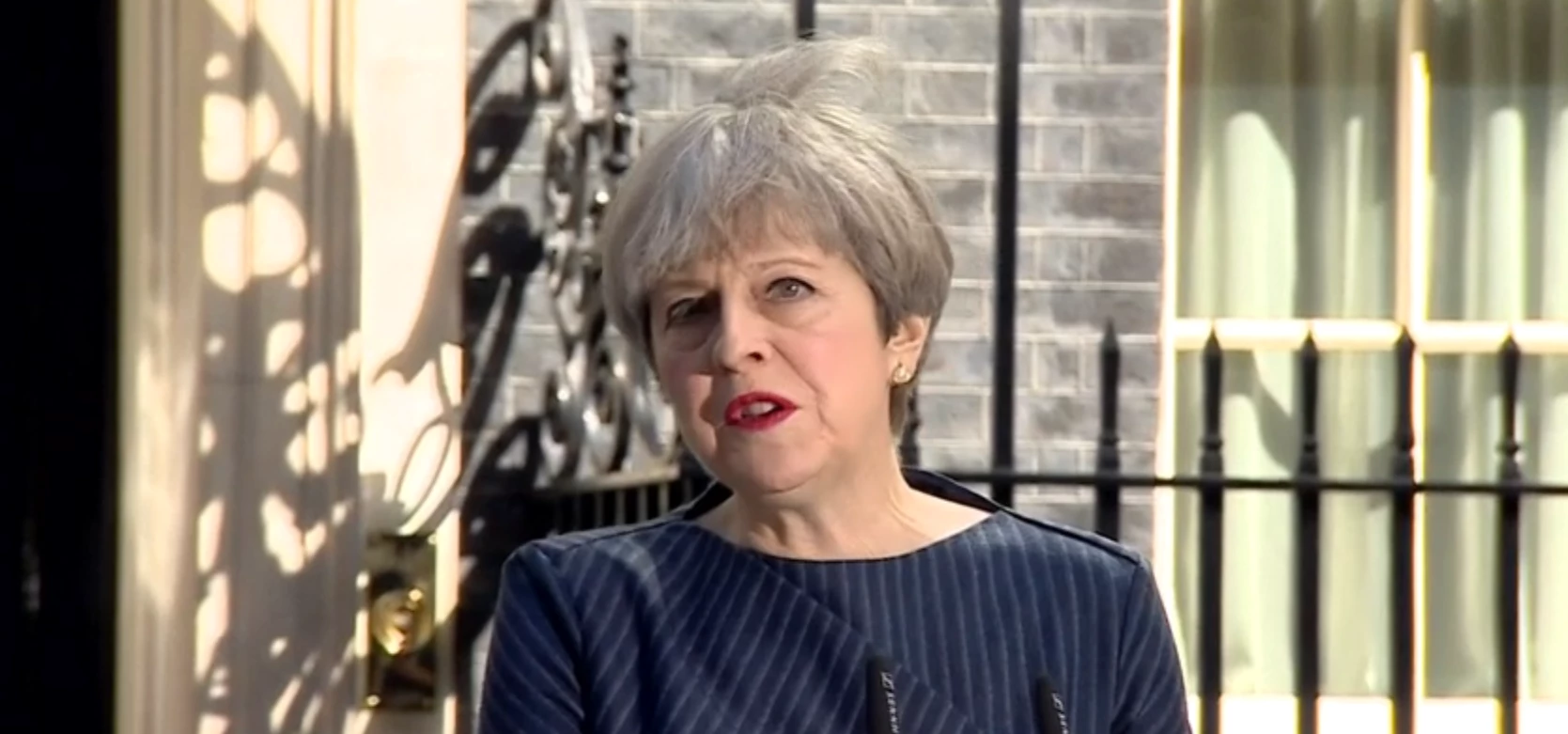
Partner Article
General Election: May seizes her moment but snap election plan is still fraught with risk
Who saw that one coming then?
With many of us barely settled back into the faded grooves of our wheezing ergonomic office chairs following the long Easter weekend, the PM sprung the surprise announcement just after 11am on Tuesday morning that she was heading to parliament to seek a snap election on 8 June.
The announcement has caught everyone off-guard, not least due to May’s continual assertions over the last year that she would not call an early General Election.
If current polling is anything to go by, it’s clear that the timing could not be better for the Tories, despite the knocks the dark art of political polling has taken in the last 12 months.
It is pretty much impossible to see Corbyn and the Labour Party overturning the Tories’ colossal lead in the opinion polls over the next 50 or so days.
In fact, few would be brave enough to predict anything but a thumping defeat for the beleaguered opposition in early June, particularly in light of a recent YouGov poll which put Corbyn’s personal ratings as low as 14% when voters were asked who would make a more effective PM.
In the context of such stonking numbers, May’s decision to push for a snap election seems more like a flagrant grab for a larger parliamentary majority than any sort of calculated gamble, but it is still a path littered with potential obstacles.
We’ve taken a closer look at some potential risks below in our snap reaction to the snap election.
May’s politicking risks alienating voters
It is perhaps a sign of the moribund opposition May currently faces in parliament that she felt able to so vehemently reject the proposition of an early election mere weeks ago, before springing today’s surprise announcement.
Quite what exactly has changed the PM’s mind isn’t clear, but what is clear is that at least some of the motivation for the move is to boost the Conservative majority in parliament and give May’s government a stronger mandate to negotiate Brexit terms and shepherd the country through the fall-out.
Such a dramatic u-turn, coming after her Chancellor was forced into an about-face of his own just over a month ago, would normally be easy pickings for an opposition able to posit a government that’s in chaos.
The argument, however, is a weak one, and with the opposition riven by its own internal crises, it’s unlikely one that will stick in the minds of voters.
Liberal Democrat resurgence?
Despite taking a shellacking at the last General Election in 2015 where their representation in parliament dropped to just 8 MPs, the party has consciously (and somewhat successfully) set itself up as sanctuary for Europhile voters alienated by both Labour and the Tories’ Brexit lines following the referendum.
The Lib Dem leader, Tim Farron, will be licking his lips at the opportunity to snatch more seats back for the party, particularly in the South West where the party seems to be back on the rise after its nadir two years ago.
Impressive performances in the recent Stoke and Copeland byelections attest to the party’s continued appeal, and rumours that former Cameron strategist, Sir Lynton Crosby, believes the Lib Dems could be well placed to snatch up to 27 seats back off the Tories this time round, hinting that the predicted canter to an increased Conservative majority may not be so clean cut after all.
‘Remoaners’ sniff their opportunity to dole out a kicking
May’s toying with the dangerous ‘enemies of the people’ rhetoric in her announcement was a blatant appeal to the same ‘take our country back’ crowd that swept the leave campaign to victory last summer.
Aside from the fact that yet another election risks further poisoning an already divided electorate, the tactic could just as easily backfire by galvanising so-called ‘remoaners’ to actively vote against the Conservative Party and their Brexit track.
Again, it’s a near impossibility that even the most surgical of vote swapping operations could deliver anything other than a Tory majority, but the risk for May remains that the increased majority she is gunning for might not be such a foregone conclusion as some in her party may assume.
As always, Bdaily wants to hear your thoughts on the matter, so feel free to send us your comments on the proposed snap election in the comments below or by emailing the editorial team at editor@bdaily.co.uk.
Looking to promote your product/service to SME businesses in your region? Find out how Bdaily can help →
Enjoy the read? Get Bdaily delivered.
Sign up to receive our popular morning National email for free.








 £100,000 milestone drives forward STEM work
£100,000 milestone drives forward STEM work
 Restoring confidence for the economic road ahead
Restoring confidence for the economic road ahead
 Ready to scale? Buy-and-build offers opportunity
Ready to scale? Buy-and-build offers opportunity
 When will our regional economy grow?
When will our regional economy grow?
 Creating a thriving North East construction sector
Creating a thriving North East construction sector
 Why investors are still backing the North East
Why investors are still backing the North East
 Time to stop risking Britain’s family businesses
Time to stop risking Britain’s family businesses
 A year of growth, collaboration and impact
A year of growth, collaboration and impact
 2000 reasons for North East business positivity
2000 reasons for North East business positivity
 How to make your growth strategy deliver in 2026
How to make your growth strategy deliver in 2026
 Powering a new wave of regional screen indies
Powering a new wave of regional screen indies
 A new year and a new outlook for property scene
A new year and a new outlook for property scene